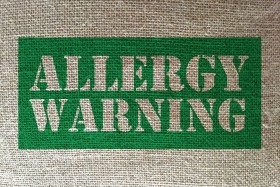Food Allergy Labels and Product Liability

For millions of people in the United States, food allergies are a significant part of their lives. In many cases, those food allergies are severe enough to jeopardize lives. According to FARE, about 200,000 people in the United States require emergency medical care every year because of reactions caused by food allergies. For those with severe food allergies, allergy warnings on food labels are a vital tool for protecting themselves or their loved ones from a life-threatening allergic reaction.
Under the Food Allergen Labeling and Consumer Protection Act (FALCPA), manufacturers of packaged foods are required to have labels that identify ingredients that belong to the eight major food allergen groups, even if they are included in very small amounts, such as in flavorings or colorings. The eight major food allergen groups are: milk, eggs, peanuts, tree nuts, soy, wheat, fish and crustacean shellfish. Some types of allergens are not covered by FALCPA’s requirements, such as molluscan shellfish and seed-based ingredients like mustard or sesame. Manufacturers are also not required to make statements if a product is manufactured in a facility where unintentional cross-contamination with allergens may occur.
FALCPA’s labeling requirements apply to all packaged foods, including conventional foods, vitamins and dietary supplements, infant formula, medical food, foods sold in vending machines, and items packaged and labeled for individual sale. It does not apply to prescription and over-the-counter drugs, pet foods and supplements, kosher labeling, and personal care items. It also does not apply to foods made-to-order in a restaurant and placed in a wrapper/container or food products regulated by the U.S. Department of Agriculture or the Alcohol and Tobacco Tax and Trade Bureau.
One thing people might not realize about defective products is that they can be considered defective even if the product itself is manufactured exactly as it is supposed to be. Products can also be considered defective if the product is not properly labeled or doesn’t provide adequate safety warnings, such as allergy labels on packaged food products.
Even though FLACA went into effect in 2006, unlabeled allergens are still a big problem. Sometimes, a company might use incorrect wording on the label or a similar product mistakenly gets placed in an incorrect package. According to a 2012 study published in the Journal of Food Protection, recalls involving undeclared allergens more than doubled between 2007 and 2012. When companies become aware of potentially dangerous foods, they are supposed to report those items to the FDA’s Reportable Food Registry and in 2014, unlabeled allergens accounted for 44% of all reports to the registry.
Cases involving improper food labeling can be complicated, so if you or a loved one suffered a serious reaction because of an unlabeled allergen, don’t hesitate to get in touch with a defective product lawyer as soon as possible. At Goodwin & Scieszka, we’re not afraid to take on businesses and big corporations. Contact us today for help with your case.






